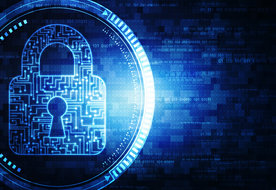 As the ERP assembles a bunch load of data, the importance of security for ERP system is a major concern for enterprises. With many unethical hackers eyeing to access the data, there is a growing demand for advanced ERP security to assure the growing ERP security concerns. Cyber attacks are happening rapidly irrespective of the size of the firms. To deal with the mounting ERP security threats from the outside, the ERP security features should be highly optimized and properly scrutinized. It is essential for businesses to pay utmost attention to the ERP cybersecurity.
As the ERP assembles a bunch load of data, the importance of security for ERP system is a major concern for enterprises. With many unethical hackers eyeing to access the data, there is a growing demand for advanced ERP security to assure the growing ERP security concerns. Cyber attacks are happening rapidly irrespective of the size of the firms. To deal with the mounting ERP security threats from the outside, the ERP security features should be highly optimized and properly scrutinized. It is essential for businesses to pay utmost attention to the ERP cybersecurity.
This article focuses on the ERP security best practices, which will minimize the ERP Security Problems simultaneously ensuring proper cybersecurity.
- Delay in Software Updates: Software updates are done by developers to fix weak spots and flaws within the application. Although it might not seem to be in the immediate need of any kind of up-gradation, with each upgraded version the security features will be better. Without adequate up-gradations, the ERP systems might be vulnerable for hackers to easily hack the ERP database and extract data.
- Solution: Keep track of the upgraded version available in the market or install an automatic updater in the system which will do the job whenever the new version is available.
- Improper Authentication: With a large amount of data and information assembled within the ERP, its security and protection is always a sensitive matter for any organization. To store and access the data in the ERP, most of the organizations often implement a simple and easy password or single authentication referred to as 1FA or (One-Factor Authentication). To breach the data the hacker needs to crack down a single code and can easily harm the stored information within the ERP.
- Solution: Apart from tough passwords at each and every layer, the passwords should also be changed regularly. Another obvious solution is 2FA which does not need any physical device for change and implementation of passwords and can be done via emails.
- Use of External Applications: Sometimes when the ERP doesn’t perform all the applications, it is integrated with external applications. But after using data in external applications, the data comes at risk as it spreads out to the outer sources without any valid protection. It is risky to manage, back-up, access, and protect the spread of data that are in multiple locations.
- Solution: It is better to circulate data within the premise of installed ERP. If not possible it is always good to go for an updated version of ERP.
- Inappropriate Configuration of Platform: The security of ERP depends largely on the configuration of ERP platforms. Factors such as indecent credentials, disorganized customizations, and faulty implementations of data can put the business at great risk.
- Solution: It might be difficult and time-consuming while implementing and integrating the ERP into the system but it should be done with utmost precautions.
- Inadequate Training to Employees: According to a recent report, most of the data loss happens in an ERP not because of any external cyber attack but due to unintentional faults by someone from within the organization. Either willingly or unwillingly, improper data handling in the ERP can often land the organization in a huge pile of loss.
- Solution: As the safeguard of the ERP system holds the utmost priority, only proficient individuals with proper training and experience should be given permission to access and manage it.
There are numerous factors that are accountable for data loss while handling ERP. Implementation of ERP in the process is an advanced step that can ensure flexibility as well as productivity within the organization. ERP guarantees the maximum organizational success but neglecting its security options can severely hinder the overall growth of the organizations.
 As the ERP assembles a bunch load of data, the importance of security for ERP system is a major concern for enterprises. With many unethical hackers eyeing to access the data, there is a growing demand for advanced ERP security to assure the growing ERP security concerns. Cyber attacks are happening rapidly irrespective of the size of the firms. To deal with the mounting ERP security threats from the outside, the ERP security features should be highly optimized and properly scrutinized. It is essential for businesses to pay utmost attention to the ERP cybersecurity.
As the ERP assembles a bunch load of data, the importance of security for ERP system is a major concern for enterprises. With many unethical hackers eyeing to access the data, there is a growing demand for advanced ERP security to assure the growing ERP security concerns. Cyber attacks are happening rapidly irrespective of the size of the firms. To deal with the mounting ERP security threats from the outside, the ERP security features should be highly optimized and properly scrutinized. It is essential for businesses to pay utmost attention to the ERP cybersecurity.